- Home
- Kristi Belcamino
Blessed are the Dead Page 2
Blessed are the Dead Read online
Page 2
Sometimes I wonder why anyone grieving would ever talk to someone like me. Maybe they sense the darkness I keep hidden deep inside. Maybe there is something in my eyes that shows I’ve already been to hell and back. I sit on their couches and take notes as they cry into tissues and flip through photo albums of the loved one they lost, sharing intimate memories with me—a stranger.
Before packing up, I make one last call to the Rosarito watch commander. He doesn’t answer. I grab my sweater and bag. Before I leave, I force myself to turn to May, who looks at me with a little smirk.
Seeing her smarmy look makes me hesitate. Although the thought of writing about a missing child sends waves of panic through me, I also don’t want May to get a scoop based on a tip from my sources.
Unfortunately, I know I need to cover my ass with the editors by giving her a heads-up.
“Keep an ear out for a missing kid in Rosarito.”
“Another story you missed?”
I stop and narrow my eyes at her. “It’s a tip. From a source. Do you know what those are? They’re what you get when you prove yourself. They take years to develop, so maybe someday you’ll get your own source. Or maybe not. Cops don’t trust just anybody.”
And I don’t trust May as far as I can toss her little waiflike body. The first week she was here, she “forgot” to give me a press release I’d been waiting for all day about a big drug bust by the DEA. It was the final piece I needed to top a story I’d been working on all week. After I left, she wrote up the information from the press release and put her byline on the story instead of mine. When I confronted her, she lied about when the press release had come over the fax. My source later told me he’d sent it earlier in the day, and the time stamp on the release backed him up. When I complained to Kellogg, he simply shrugged and changed the subject.
Tonight, I stare at May for a few seconds and walk away before I completely lose it. I hover nearby as Kellogg reads my story.
Kellogg’s six-foot-tall body is scrunched into his cubicle, like a giant brown teddy bear among the dolls at a child’s tea party. I stand beside his desk staring at the pictures taped to the fabric wall of his cubicle: school photos of his two sons, who live with their mother. They go to some fancy private school in Marin County. His ex manages to squeeze every penny she can out of Kellogg, claiming she needs it for the kids. He sleeps on the couch in his one-bedroom apartment to make sure his boys feel like they have their own bedroom at his place.
I wait, shifting from foot to foot. Finally, he’s done.
“Looks fine. No questions.”
I turn to leave, but he stops me.
“You couldn’t get the missing kid confirmed?”
I shake my head no. When I see the concerned look in his eyes, I wait, wondering if he has something else to say. But he immediately turns to his black-and-green screen. He’s onto editing another story.
An odd mixture of frustration and relief flutters through me as I walk to my car. Although I want to avoid writing about a missing kid, my failure tonight amounts to my missing a scoop on what could potentially be a huge story on my beat. And underneath all those emotions, there is also a tiny flicker of worry gnawing at me when I remember the look in Kellogg’s eyes.
Chapter 2
HALFWAY ACROSS THE Bay Bridge, I catch glimpses of the city as the hazy fog begins to dissipate and reveal a crisp night sky. Twinkling lights dot skyscraper windows. The sky behind them is not black but a deep blue like a Van Gogh nightscape. With the city spread out before me, a sense of buoyancy spreads through my chest as if I could fly. Even on the darkest nights of my life, I’ve always found comfort looking at the San Francisco skyline. Rolling down my window, inhaling the salty air, I punch the radio dial until I find something that will lift my spirits.
I sing along to UB40’s “Red, Red Wine” and reassure myself that I have nothing to worry about—that little Rosarito girl will turn up before morning. The Trib probably won’t get tipped off about the story. Brad is not answering the phone because he fell asleep.
My phone rings, sending my heart skipping into my throat, but it’s not Brad. It’s my mother. Again. I ignored three calls from her back at the office. I know if it were urgent, she would have left a message. I’m not in the mood to hear her complain about how I never have time for the family anymore. I missed my niece Sofia’s first communion last weekend covering a high-speed car crash that killed two local teens. I’ve been a reporter for seven years, so you think my mother would be used to it by now, but in my family, missing a get-together is practically grounds for a vendetta.
I dial Brad again. The phone rings and rings. I debate letting it ring all the way home, but decide that’s a bit childish. Maybe he’s angry I bailed on his birthday dinner. I get it. I understand he’s upset, but it’s not my fault. It’s the nature of my beat—I never know when a story is going to break.
I shove my phone back in my bag and exit on Fremont Street. The city streets downtown are quiet on the way to North Beach. Once I hit Chinatown, the city bursts into color and sound like a fireworks finale. The crowds of people on the sidewalks of Columbus Avenue thicken right where Chinatown and North Beach meet. Men stand in groups ogling the women walking by, their faces lit up with the flashing neon lights of the strip-club marquees. Restaurants have flung open their French doors, and cafe tables spill out onto the sidewalks with late-night diners. Music pours across the streets like smoke.
I’m almost home. I’m looking forward to having a glass of wine and spending some time with Brad. My street is off the main drag and three blocks up the hill. I circle the block a few times until finally I spot a group of women heading up my street and slowly cruise behind them. I yawn and wait for them to maneuver out of their tight parking spot. It takes me about five minutes to cram my old Volvo sedan between two other cars. My apartment’s about a block away, so the parking spot is lucky. I’ve had to park up Russian Hill before, about six blocks straight up. Living in the city automatically means I’ll never have to join a gym. I get enough exercise hiking to and from my car each day.
From the front, my apartment building is a concrete block lacking any of the charm you might expect in the old Italian section of the city. However, the back of the building reminds me of a secret garden, dotted with balconies overlooking North Beach. I’m almost to my front door when he steps out of the shadows in front of me. I nearly scream.
“Brad? You scared me half to death.”
He looks guilty. Then I realize why. He’s holding a small gym bag.
“I was going to wait . . .” he says, his words trailing off. He won’t meet my eyes. “Here are your keys. I got my things.”
I blink. At first, not comprehending. Then I decide to pretend that he’s not telling me it’s over.
“Listen, I’m really sorry I missed your birthday dinner. I promise to make it up to you. You know what my job is like.”
I look away. I truly am sorry, but I’m also tired of defending my job to every man I date. For once, I want to have a boyfriend who gets it. They like how passionate I am about my career until it interferes with their plans.
If it weren’t for my job, I’d be married with three kids by now. Since my wedding was called off, I’ve racked up four failed relationships in as many years. Sadly, this is a familiar conversation, and it always ends the same way.
I stare at Brad, willing him to be the guy who gets it. He’s already turning toward the street when he says, “It’s not the first time this has happened, and you know it.”
He’s right. Six months into the relationship, and I’ve already stood him up a few times. He spent New Year’s Eve alone while I rode along with the cops. I ran off before Easter dinner because a small plane crash-landed on the freeway. A few weeks ago, I canceled a getaway weekend to wine country when cops busted a meth lab in an expensive gated community. There’s noth
ing I can say to defend myself.
Silence. The only sound is the faint strains of opera music coming from one of the Columbus Avenue restaurants. It’s from La Traviata. For some reason, an image of Violetta, alone and unloved on her deathbed, makes me sad. But I don’t cry. I never cry. I haven’t cried since the day they lowered my sister’s casket into the ground.
“I know my job is crazy —” I begin.
“It’s not just that,” Brad says, interrupting. “It’s not only your job . . . I’m tired of trying to break through the walls you’ve built up.”
“What?” What the hell is he talking about? In the dim glow cast by the streetlight, it’s hard to discern his expression. I peer at him, but his baseball cap casts a shadow over his face, obscuring the look in his eyes.
He shrugs his coat collar tighter against the cool breeze swirling down my street, bringing with it the salty scent of the ocean. How odd that I’m in the middle of getting dumped by my boyfriend, and all I can think about is how much I love the smell of the ocean.
“Listen,” Brad says, hoisting the duffel bag over his shoulder. “I don’t want to date around anymore. I don’t want to be an older father. I want to start a family.”
I’m quiet for a moment, thinking about this. “I want all that one day, too.” It’s all I can come up with. I don’t say anything else. Something deep inside me won’t let me say more. He’s going to walk away now. I know it. I fight back tears. Die before cry. It’s my private mantra. It always works.
“So, that’s it?” he asks. I know I should say something to stop him, but I can’t. “Okay. See you around,” he says, and starts to walk away, but then he pauses. “By the way, you’ve got black shit smeared all over your forehead.”
I stand and watch until he rounds a corner. He never glances back.
I AWAKEN IN the morning with dark smudges under my eyes from my smeared makeup and a tangled mess of smoky-smelling hair. It just adds to the Halloween-like appeal of the black gunk that won’t come off my forehead. I can almost hear my mother’s voice chiding me for going to bed without washing my face. I’m a bit dismayed myself after having it drummed into me from childhood that not taking off your makeup at night adds an extra five years to your face. At this point, it doesn’t even matter if it’s true because I experience major Catholic guilt every time I fall asleep without a thorough face cleansing.
No wonder Brad beat it out of here last night, I think, as I peer in the mirror. I look like a freak show. Thinking of Brad, weariness overcomes my body. I wonder if there was something I could have said to make things right with him. What did he want me to say? That I worry deep down inside that I’m incapable of having a real relationship and possibly unlovable anyway, but that he should still stay with me? Obviously, that wouldn’t have worked. Maybe I’m meant to be alone. As much as I dream of having my own family someday, it may never happen. And part of me, the dark part, can’t help but wonder what’s the point in loving someone anyway? They just leave. One way or the other, they always leave.
I angrily wipe away a few salty tears that are trying to slip out. Die before cry. I can already hear the sigh my mother is going to give when she hears that Brad is out of the picture, and there’s not a chance for any new grandbaby bambinos for her in the foreseeable future.
In the shower, I contemplate taking a break from dating. Or better yet, to just stop caring. Maybe I’ll be like a guy and date and sleep around and not get hurt because I won’t care. I won’t be disappointed if I don’t expect anything
Dressed, I pad across my wood floor into my kitchen, tucked into a corner near the big, sliding-glass door leading to the balcony. The bulk of my studio apartment is filled with overflowing bookshelves, a beat-up red velvet couch, a small dining table, and my bed shoved up against one wall. My place is tiny, but it’s in North Beach, and I get a great deal on the rent because the landlady went to Catholic school with my grandfather.
I grind some espresso beans into a fine powder and stick some sourdough bread in the toaster. As the coffee begins to percolate, I stand over the chessboard on the end table and chew on my lower lip examining the pieces.
It’s my move. Tomas sent me his latest move two days ago. Then, right when the toast pops up, startling me, I see it. Knight takes bishop’s pawn. I grab a postcard from a stack already addressed and stamped with international postage. I scribble my move. As an afterthought, I add a small smiley face to soften the blow. He might be able to escape it, but if he does what I want him to, my next move will be checkmate.
Juggling my toast, coffee, and a stack of newspapers, I step onto my balcony. The sun is streaming over the Oakland Hills to the east as I settle everything on my cafe table. I pull a woolly sweater around me and warm my hands on my big bowl of coffee. The fog is already receding this morning, revealing the shops below. My perch overlooks the rest of North Beach, the Italian section of San Francisco where my great grandparents settled after coming to America.
My full name is Gabriella Maria-Grazia Giovanni. Both sides of my family are Italian-American, living in the Bay Area suburbs southeast of here. As a child, during the summer on Saturdays, my mother would take us to North Beach, where she grew up. We would join the throngs of people on Columbus Avenue doing early shopping for Sunday dinner or drinking espressos at sidewalk tables. Our afternoons included eating pistachio gelatos in stainless-steel bowls and picking up tins of amaretto cookies to bring home. It was always a day of treats and laughter with my joy-filled mother.
That was before. Those were the happiest days of my life, before a dark shadow fell upon our family, blotting out our light, smudging it into a gray smear.
After I got the job at the Bay Herald, I searched hard to find a place in North Beach I could afford, maybe in an attempt to hold tight to those happy childhood memories.
Sitting on my balcony this morning, I scan the morning paper, sip my coffee, and munch on my toast. I still get a thrill out of seeing my name in print, just as I did the first time I saw it in the college newspaper.
I’m reading my story about the murder-suicide when I do a double take. The part about the father being in drag is now in my story. What the hell? How did the copy desk know about this detail and why would they insert it without checking with me first? Then my eyes fall to the bottom of the story, and the answer is clear: “May DuPont contributed to this story.” She somehow found out, threw it in my story, and gave herself a tagline.
I can feel my face flush with heat. I can’t even complain to the editors because they will scold me for leaving that detail out, especially if the competing paper has it.
Then I scan the Trib. Damn. They do have it. Andy Black, my nemesis, has the drag part and the names confirmed. As I continue scanning the Trib, my day gets worse—Black managed to nab the story about the missing Rosarito girl. Shit.
Time to face my fears. My legs are suddenly heavy as I stand.
Chapter 3
MY LANDMARKS ARE MORBID.
Driving through the lush, green, East Bay suburbs that make up my beat, I realize every reference point I have in this area stems from a crime or tragedy I’ve covered. The rolling hills are deceptively bucolic. My mental map includes a legend depicting the dead in 3-D relief: stabbing, fatal car crash, strangling, house fire, and so on.
For instance, down this road is the house where two brothers, saying they believed they were serving God’s will, chopped up three people in a bathtub, put the body parts in duffel bags, and dumped them in the waters of the San Joaquin River Delta.
A man died on this steep hillside when the backhoe he and his teenage son were on toppled. He only had time to shove his son out of danger. Later, his son and wife asked permission to go lie down in the dirt beside his body to say their good-byes.
Deep down this ravine, a man lay trapped upside down in his car for two days before a local guy noticed new sk
id marks and hiked down the hill to investigate. The shivering driver hung upside down by his seat belt for nearly forty-eight hours. The first thing he said to his rescuers was, “My wife must be worried sick.” He died the next day in the hospital.
Each time I pass one of these places, I make the sign of the cross. These dead people haunt my memories and leave ghostly trails throughout the territory I cover.
Rosarito holds no such ghosts for me. Because it’s outside the Bay Herald’s typical coverage area, when there is a murder in Rosarito—and there are plenty of them —it must be practically tabloid-worthy for us to cover it. Of course, a missing child could be big. Or it could end up being nothing at all. A lot of missing-children cases stem from custody disputes where a disgruntled parent flees with the kid.
My best friend, Nicole, the courts reporter at the paper, calls as I’m driving.
“Holy shit!”
“I know,” I answer. “Shitty thing is I had the tip, but Kellogg didn’t have the balls to run with it.”
“Cops wouldn’t confirm kid was missing?”
“Nope.”
“And the dad was dressed in drag?”
“Yeah. I’ll probably get reamed for that, too. I thought it was too much. Those kids will have that small detail haunt them forever. I just couldn’t do it.”
“That was probably the right call.”
Probably?
“Listen, I’m on my way to Rosarito. I’ll talk to you later.”
I’m about to hang up when I hear her clear her throat.
“You going to be okay with this one?” She says it softly. I can almost imagine the crease of concern between her eyes. She’s the only one at the newspaper who knows about Caterina. The night I told her, we’d been drinking wine at my place, celebrating a big scoop we’d both worked on when she noticed a picture of Caterina and me on my nightstand.

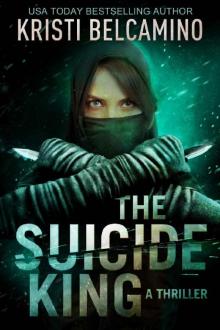 The Suicide King
The Suicide King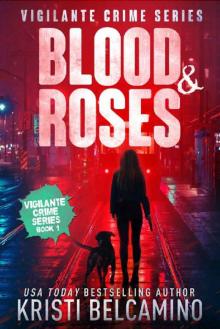 Blood & Roses (Vigilante Crime Series)
Blood & Roses (Vigilante Crime Series)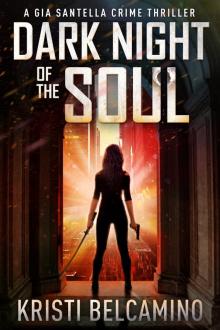 Dark Night of the Soul
Dark Night of the Soul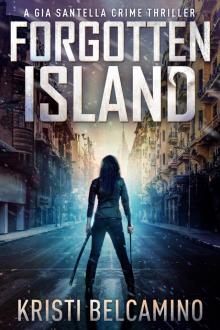 Forgotten Island
Forgotten Island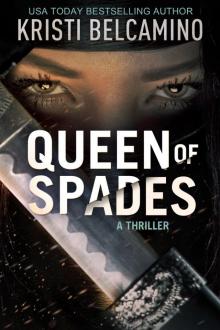 Queen of Spades
Queen of Spades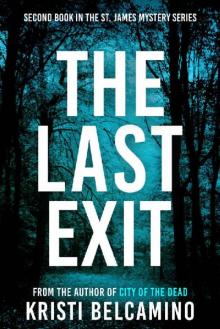 The Last Exit: A St. James Mystery (St. James Mysteries Book 2)
The Last Exit: A St. James Mystery (St. James Mysteries Book 2)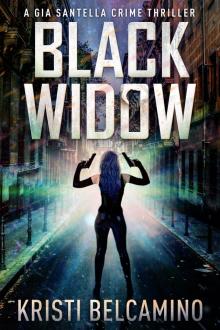 Black Widow
Black Widow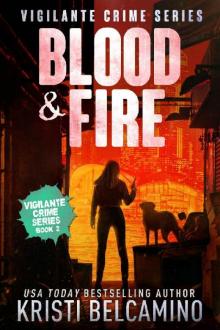 Blood & Fire (Vigilante Crime Series Book 2)
Blood & Fire (Vigilante Crime Series Book 2) End Game
End Game Buried Secrets
Buried Secrets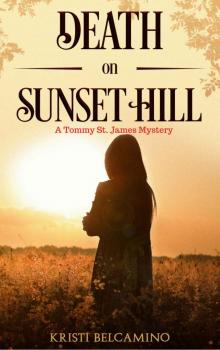 Death on Sunset Hill (A Tommy St. James Mystery Novella Book 2)
Death on Sunset Hill (A Tommy St. James Mystery Novella Book 2)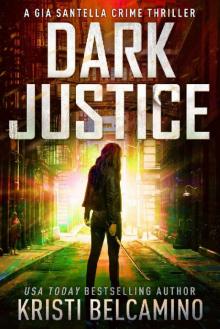 Dark Justice
Dark Justice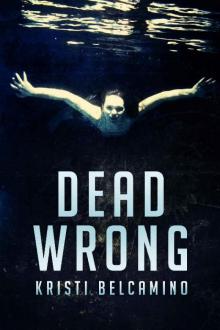 Dead Wrong
Dead Wrong No Way Out
No Way Out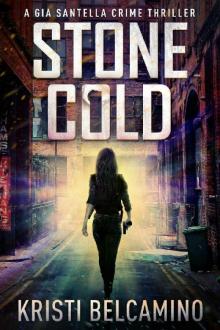 Stone Cold
Stone Cold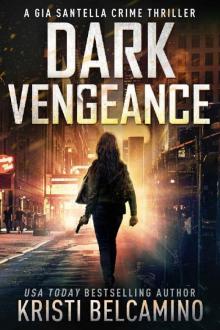 Dark Vengeance
Dark Vengeance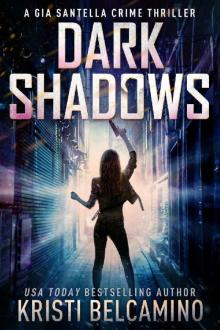 Dark Shadows (Gia Santella Crime Thrillers Book 11)
Dark Shadows (Gia Santella Crime Thrillers Book 11)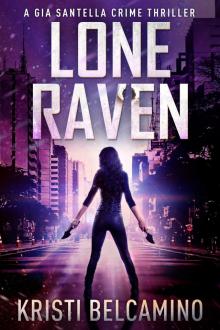 Lone Raven
Lone Raven![[Gia Santella 01.0] Gia in the City of the Dead Read online](http://i1.bookreadfree.com/i/03/16/gia_santella_01_0_gia_in_the_city_of_the_dead_preview.jpg) [Gia Santella 01.0] Gia in the City of the Dead
[Gia Santella 01.0] Gia in the City of the Dead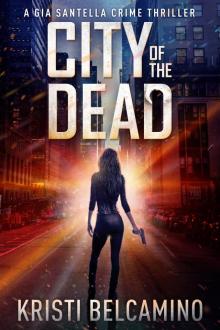 City of the Dead
City of the Dead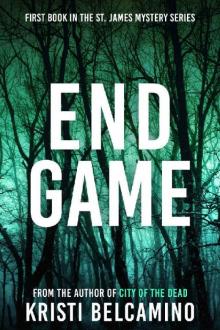 END GAME: A St. James Mystery (St. James Mysteries Book 1)
END GAME: A St. James Mystery (St. James Mysteries Book 1)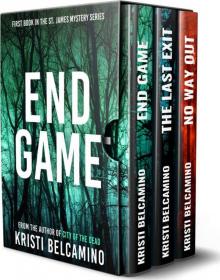 Tommy St James Mysteries Boxed Set
Tommy St James Mysteries Boxed Set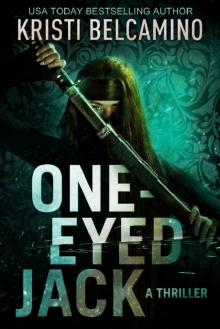 One-Eyed Jack
One-Eyed Jack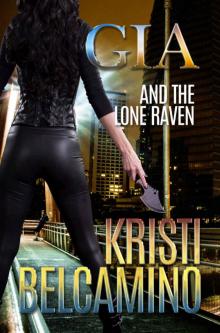 Gia and the Lone Raven
Gia and the Lone Raven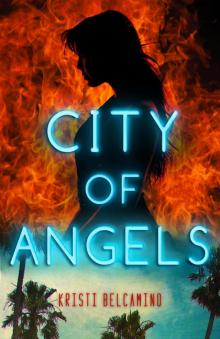 City of Angels
City of Angels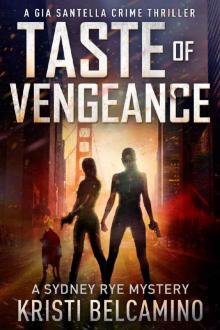 Taste of Vengeance
Taste of Vengeance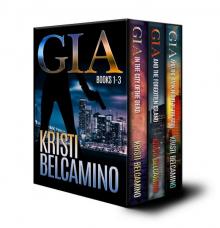 Gia Santella Crime Thriller Boxed Set: Books 1-3 (Gia Santella Crime Thrillers)
Gia Santella Crime Thriller Boxed Set: Books 1-3 (Gia Santella Crime Thrillers)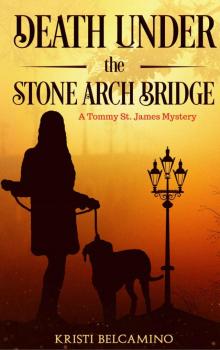 Death under the Stone Arch Bridge
Death under the Stone Arch Bridge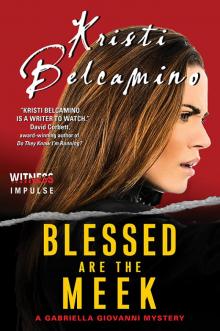 Blessed are the Meek
Blessed are the Meek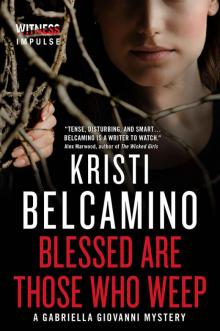 Blessed Are Those Who Weep
Blessed Are Those Who Weep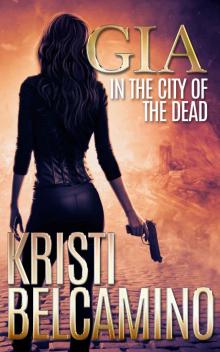 Gia in the City of the Dead
Gia in the City of the Dead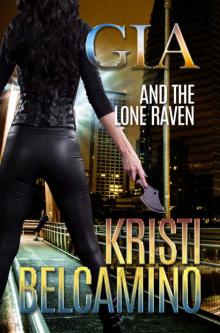 Gia and the Lone Raven (Gia Santella Crime Thriller - Novella Book 4)
Gia and the Lone Raven (Gia Santella Crime Thriller - Novella Book 4)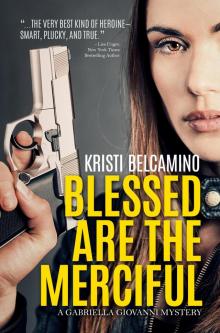 Blessed are the Merciful
Blessed are the Merciful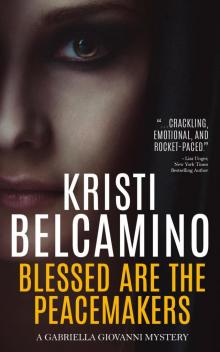 Blessed are the Peacemakers
Blessed are the Peacemakers Gia and the Forgotten Island (Gia Santella Crime Thriller Book 2)
Gia and the Forgotten Island (Gia Santella Crime Thriller Book 2)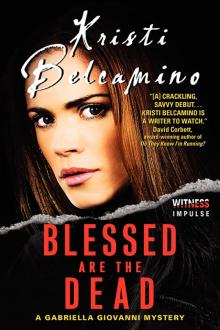 Blessed are the Dead
Blessed are the Dead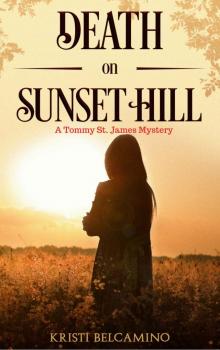 Death on Sunset Hill
Death on Sunset Hill